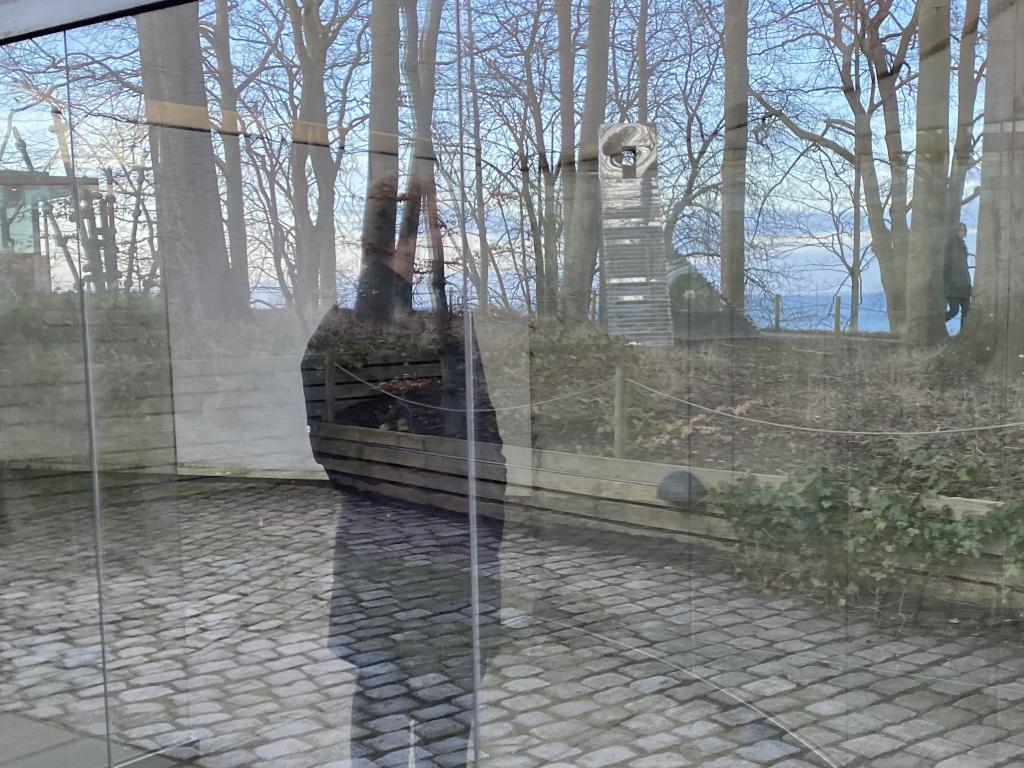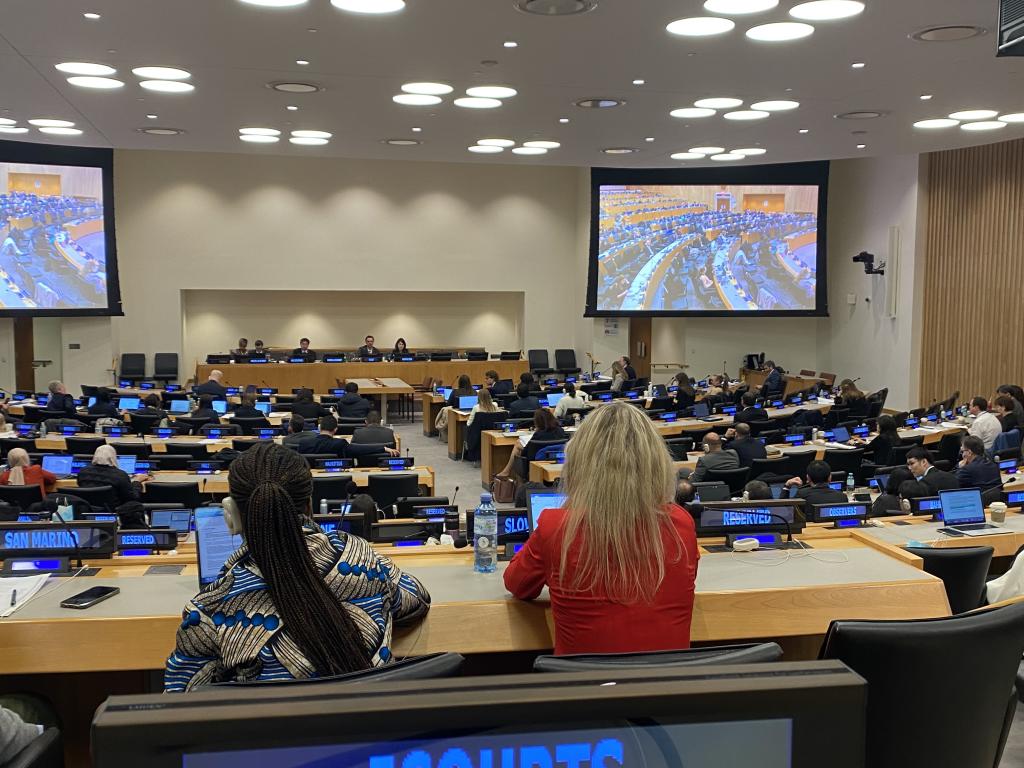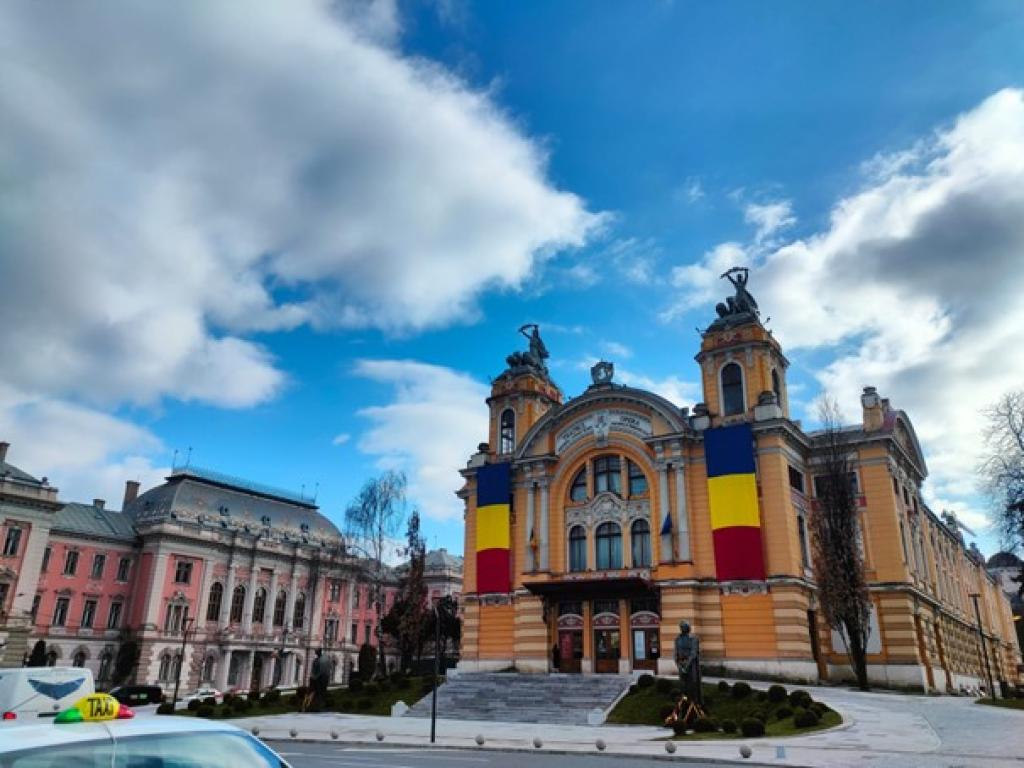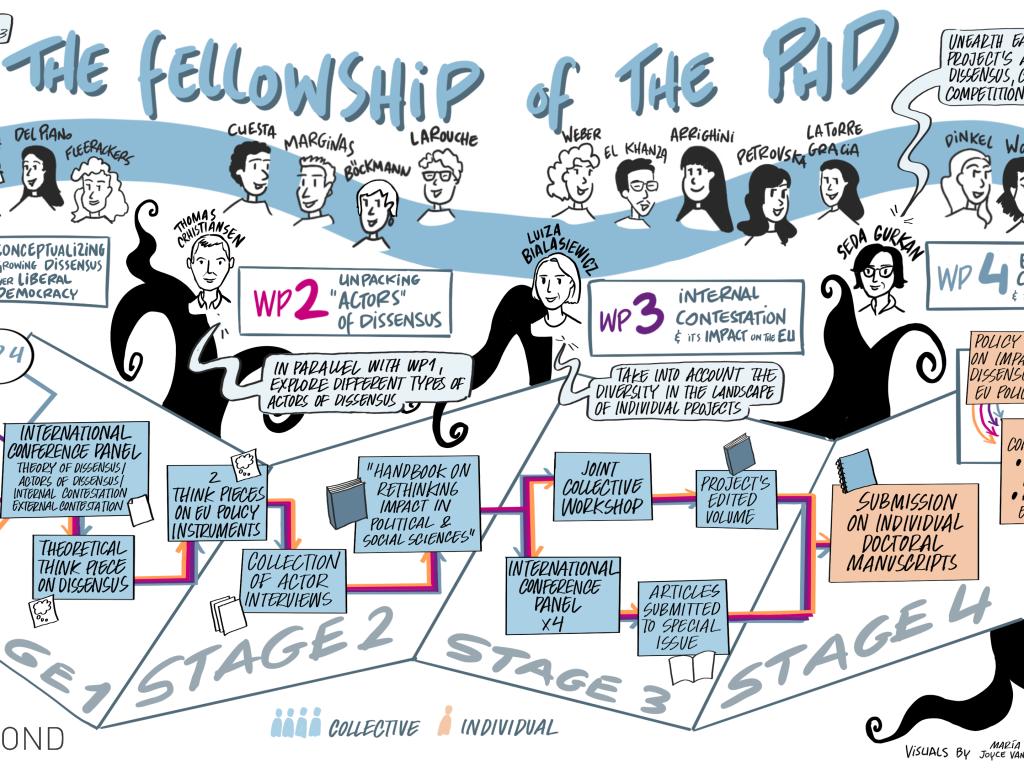Guillaume François (G.F.) Larouche
GEM-DIAMOND doctoral fellow
ESR 8 – Technocratic actors as ‘teachers’ of the rule of law: EU technical assistance, capacity-building and other pathways
As a member of GEM-DIAMOND, I am part of a community of researchers whose purpose is to produce empirical, scientific & data-driven legal research and to develop critical thinking in research.
The Restructuration of the ISDS Field by Arbitration Professionals: A Sociolegal Study
Supervisors
- Mikael Madsen
- Jean-Frederic Morin
- Chloé Brière
Research abstract
Research Question(s)
Personal Research Bibliography (So Far)
Allan, T. R. S. 1988. “Dworkin and Dicey: The Rule of Law as Integrity.” Oxford Journal of Legal Studies 8, no. 2: 266-277.
Baldwin, John, and Gwynn Davis. 2005. “Empirical Research in Law.” In The Oxford Handbook of Legal Studies, edited by Mark Tushnet and Peter Cane, 880-99. Oxford: Oxford University Press.
Blackstone, William. 1979 [1765]. Commentaries on the Laws of England. Chicago: University of Chicago Press.
Barrett, Jill M., and Jean-Pierre Gauci, eds. 2021. British Contributions to International Law, 1915-2015. An Anthology Set. Leiden: Brill Nijhoff.
Bertsou, Eri, and Daniele Caramani, eds. 2020. The Technocratic Challenge to Democracy. Abingdon: Routledge.
Bourdieu, Pierre. 1972. Esquisse d’une théorie de la pratique. Précédé de “Trois études d’ethnologie Kabyle.” Travaux de Sciences Sociales. Paris: Librairie Droz.
Bourdieu, Pierre. 1977. Outline of a Theory of Practice. Cambridge: Cambridge University Press.
Bourdieu, Pierre. 1981. “La représentation politique: Éléments pour une théorie du champ politique.” Actes de la recherche en sciences sociales 36, no. 7: 3-24.
Bourdieu, Pierre. 1986. “La force du droit: Éléments pour une sociologie du champ juridique.” Actes de la recherche en sciences sociales 64 (September): 3–19.
Bourdieu, Pierre. 1987. “The Force of Law: Toward a Sociology of the Juridical Field.” The Hastings Law Journal 38(5): 805–853.
Bourdieu, Pierre. 1989. La Noblesse d’État. Grandes écoles et esprit de corps. Paris: Les Éditions de Minuit.
Bourdieu, Pierre. 1993. “Esprits d’État. Genèse et structure du champ bureaucratique.” Actes de la recherche en sciences sociales 96-97, (March): 49-62.
Bourdieu, Pierre. 2000. Les Structures sociales de l’économie. Paris: Seuil.
Bourdieu, Pierre. 2001. “Le mystère du ministère.” Actes de la recherche en sciences sociales 140: 7-11.
Carillo, Roberto, and Lidia Núñez. 2021. “Interdisciplinarity.” In Research Methods in the Social Sciences: An A-Z Key Concepts, edited by Jean-Frédéric Morin, Christian Olsson and Ece Özlem Atikcan, 145-149. Oxford: Oxford University Press.
Carothers, Thomas, and Peter Burnell. 2005 Critical Mission. Essays on Democracy Promotion. Washington, DC: Carnegie Endowment for International Peace.
Carothers, Thomas, ed. 2006. Promoting the Rule of Law Abroad: In Search of Knowledge. Washington, DC: Carnegie Endowment for International Peace.
Cremona, Maryse. 2011. “Values in EU Foreign Policy.” In Beyond the Established Legal Orders Policy Interconnections between the EU and the Rest of the World, edited by Malcolm Evans and Panos Koutrakos: 275-315. London: Bloomsbury.
Coman, Ramona. 2022. “The Core Dimensions of the Rule of Law: From Consensus to Dissensus.” In The Politics of the Rule of Law in the EU Polity: Actors, Tools and Challenges, edited by Michelle Egan, Neill Nugent and William E. Paterson: 37-73. Palgrave Studies in European Union Politics Book Series. London: Palgrave Macmillan.
Costa, Oriol. 2019. “The Politization of EU External Relations.” Journal of European Public Policy 26, no. 5: 790-802.
Cotterrell, Roger. 2009. “Ehrlich at the Edge of Empire: Centres and Peripheries in Legal Studies.” In Living Law: Reconsidering Eugen Ehrlich, edited by Marc Hertogh: 75-94. London: Hart Publishing.
Cross, F. 1997. “Political science and the new legal realism: a case of unfortunate interdisciplinary ignorance.” Northwestern University Law Review. 92 (September): 251–326.
Council of Europe (European Commission For Democracy Through Law). Report on the Rule of Law. Study No. 512 / 2009. Adopted by the Venice Commission at its 86th plenary session. Venice, 25-26 March 2011.
Dicey, A.V. 1961 [1885]. Introduction to the Law of the Constitution, 10th ed. London: Macmillan.
Dinan, Desmond. 2017. “Governance and Institutions: The Insidious Effect of Chronic Crisis.” Journal of Common Market Studies 55, no. S1 (September): 73-87.
Dworkin, Ronald. 1985. “Political judges and the rule of law.” In A matter of principle, edited by Ronald Dworkin. Cambridge, MA: Harvard University Press.
Dworkin, Ronald. 1985. Law’s Empire. Cambridge, Massachusetts: The Belknap Press of Harvard University Press.
Ehrlich, Eugen. 1971 [1913]. Fundamental Principles of the Sociology of Law. Harvard Studies in Jurisprudence. Cambridge, Massachusetts: Harvard University Press.
Fenno, Richard F. 1990. Watching Politicians: Essays on Participant Observation. Berkeley: Institute of Governmental Studies, University of California at Berkeley.
Fuller, Lon L. 1969. The morality of law. New Haven: Yale University Press.
Gowder, Paul. 2016. The Rule of Law in the Real World. Cambridge: Cambridge University Press.
Gozzi, Gustavo. 2007. “Rechtsstaat and individual rights in German constitutional history.” In The rule of law. History, theory and criticism, ed. Pietro Costa and Danilo Zolo, 237–259. Dordrecht: Springer Verlag.
Hart, H.L.A. 2012 [1961]. The Concept of Law. 3rd ed. Clarendon Law Series. Oxford: Oxford University Press.
Hegemann, Hendrik, and Ulrich Schneckener. 2019. “Politicising European Security: From Technocratic to Contentious Politics?” European Security (London, England) 28, no. 2: 133–52.
Hertogh, Marc, ed. 2009. Living Law: Reconsidering Eugen Ehrlich. London: Hart Publishing.
Heuschling, Luc. 2002. État de droit, Rechtsstaat, Rule of law. Nouvelle Bibliothèque de Thèses. Paris: Éditions Dalloz.
Holtermann, Jakob V. H., and Mikael Rask Madsen. 2021. “European New Legal Realism: Towards a Basic Science of Law.” In Research Handbook on Modern Legal Realism, edited by Shauhin Talesh, Elizabeth Mertz and Heinz Klug, 67-81. Cheltenham: Edward Elgar Publishing.
Holtermann, Jakob V. H., and Mikael Rask Madsen. 2016. “What is Empirical in Empirical Studies of Law? A European New Legal Realist Conception.” iCourts Working Paper Series, No. 77, 2016. Copenhagen: iCourts.
Holtermann, Jakob V. H., and Mikael Rask Madsen. 2015. “European New Legal Realism and International Law: How to Make International Law Intelligible.” Leiden Journal of International Law 28, no. 2 (June): 211-30.
Hutchinson, Allan C., and Patrick Monahan. 1987. “Democracy and the Rule of Law.” In The Rule of Law: Ideal or Ideology?, edited by Allan C. Hutchinson and Patrick Monahan, Toronto: Carswell.
Ioannides, Isabella. 2014. “Rule of Law in European Union External Action: Guiding Principles, Practices and Lessons Learned.” International Institute for Democracy and Electoral Assistance. Strömsborg, Sweden.
Koskenniemi, Martti. 2002. The Gentle Civilizer of Nations: The Rise and Fall of International Law, 1870-1960. Cambridge: Cambridge University Press.
Koskenniemi, Martti. 2005. From Apology to Utopia: The Structure of International Legal Argument. 2nd ed. Cambridge: Cambridge University Press.
Koskenniemi, Martti. 2009. “The Politics of International Law - 20 Years Later.” European Journal of International Law 20, no. 1: 7–19.
Koskenniemi, Martti. 2018. “Speaking the Language of International Law and Politics: Or, of Ducks, Rabbits, and Then Some.” In Mobilising International Law for “Global Justice”, edited by Jeff Handmaker and Karin Arts: 22–45. Cambridge: Cambridge University Press.
Koskenniemi, Martti. 2019. “Imagining the Rule of Law: Rereading the Grotian ‘Tradition.’” European Journal of International Law 30, no. 1: 17–52.
Koskenniemi, Martti. 2021. To the Uttermost Parts of the Earth: Legal Imagination and International Power, 1300-1870. Cambridge: Cambridge University Press.
Krygier, Martin. 2014. “Rule of Law (and Rechtsstaat).” In The Legal Doctrines of the Rule of Law and the Legal State (Rechtsstaat), edited by James R. Siklenat, James E. Hickey Jr. and Peter D. Barenboim: 45-61. Berlin: Springer.
Laïdi, Zaki. 2013. La norme sans la force: L’énigme de la puissance européenne. 3rd ed. Paris: Presses de Sciences Po, 2013.
Lavenex, Sandra and Frank Schimmelfennig. 2009. “EU rules beyond EU borders: theorizing external governance in European politics.” Journal of European Public Policy 16, no. 6 (August): 791–812.
Leiter, Brian. 2001. “Legal realism and legal positivism reconsidered.” Ethics 111, no. 2 (January: 278-301.
Leiter, Brian. 2007. Naturalizing Jurisprudence: Essays on American Legal Realism and Naturalism in Legal Philosophy. Oxford: Oxford University Press
Leiter, Brian. 2012. “In praise of realism (and against ‘nonsense jurisprudence’)”. The Georgetown Law Journal 100, no. 3: 865–93.
Lenoir, Rémi. 2012. “L’État selon Pierre Bourdieu.” Sociétés contemporaines 87, no. 3: 123–54.
Madsen, Mikael Rask. 2004. “Merging Law and Sociology: Beyond the Dichotomies in Socio-Legal Research.” Acta Sociologica 47, no. 3 (September): 305-7.
Manners, Ian. 2002. “Normative Power Europe: A Contradiction in Terms.” Journal of Common Market Studies 40, no. 2 (June): 235-258.
Meierhenrich, Jens, and Martin Loughlin, eds. 2021. The Cambridge Companion to the Rule of Law. Cambridge: Cambridge University Press.
Meierhenrich, Jens. 2021. “What the Rule of Law Is ... and Is Not.” In The Cambridge Companion to the Rule of Law, edited by Jens Meierhenrich and Martin Loughlin, 569-621. Cambridge: Cambridge University Press.
Mérand, Frédéric. 2021. The Political Commissioner: A European Ethnography. Transformations in Governance Series. Oxford: Oxford University Press.
Miles, Kate. 2013. The Origins of International Invesment Law: Empire, Environement and the Safeguarding of Capital. Cambridge Studies in International and Comparative Law. Cambridge: Cambridge University Press.
Morrill, Calvin, and Lauren B. Edelman. 2021. “Sociology of Law and New Legal Realism.” In Research Handbook on Modern Legal Realism, edited by Shauhin Talesh, Elizabeth Mertz and Heinz Klug, 413-31. Cheltenham: Edward Elgar Publishing.
Johansson-Nogués, Elisabeth, Martijn C. Vlaskamp and Esther Barbé. 2020. “EU Foreign Policy and Norm Contestation in an Eroding Western and Intra-EU Liberal Order.” In European Union Contested Foreign Policy in a New Global Context, edited by Elisabeth Johansson-Nogués, Martijn C. Vlaskamp & Esther Barbé: 1-16. Norm Research in International Relations Series. Cham: Springer Cham.
Nourse, Victoria, and Gregory Shaffer. 2009. “Varieties of New Legal Realism: Can a New World Order Prompt a New Legal Theory.” Cornell Law Review 95, no. 1 (November): 61-138.
Palombella, Gianluigi. 2009. “The rule of law beyond the state: Failures, promises, and theory.” International Journal of Constitutional Law 7(3): 442–467.
Pech, Laurent. 2009. “The Rule of Law as a Constitutional Principle of the European Union.” IDEAS Working Paper Series from RePEc.
Pech, Laurent. 2012. “Rule of law as a guiding principle of the European Union’s external action.” Cleer Working Papers 2012/3, T.M.C. Asser Instituut, The Hague.
Poggi, Gianfranco. 1978. The development of the modern state. Stanford: Stanford University Press.
Pound, Rosco. 1910. “Law in Books and Law in Action.” American Law Review 44, (January-February): 12–36.
Olsen, Henrik Palmer and Henrik Stampe Lund, eds. 2022. The Making of iCourts: New Interdisciplinary Legal Research. Baden-Baden: Nomos Publishing House.
Radaelli, Claudio M. 2013. Technocracy in the European Union. New York: Routledge.
Raz, Joseph. 1979. “The rule of law and its virtue.” In The Authority of Law: Essays on Law and Morality, edited by Joseph Raz. Oxford: Clarendon Press.
Redor, Marie-Joëlle. 1992. “De l’État légal à l’État de droit: l’évolution des conceptions de la doctrine publiciste française, 1879-1914.” Paris: Economica.
Romano, Cesare P.R. 2022. “A Taxonomy of International Rule of Law Institutions.” In The Making of iCourts: New Interdisciplinary Legal Research, edited by Henrik Palmer Olsen and Henrik Stampe Lund: 47-88. Baden-Baden: Nomos Publishing House.
Schmitter, Philippe C., and Terry Lynn Karl. 1991. “What Democracy Is . . . and Is Not,” Journal of Democracy, no. 3 (Summer): 75-88.
Schneiderman, David. Constitutionalizing Economic Globalization: Investment Rules and Democracy’s Promise. Cambridge: Cambridge University Press, 2008.
Suchman, Mark C., and Elizabeth Mertz. 2010. “Toward a New Legal Empiricism: Empirical Legal Studies and New Legal Realism.” Annual Review of Law and Social Science 6, (August): 555-579.
Schultz, Thomas, and Cédric Dupont. 2014. “Investment Arbitration: Promoting the Rule of Law or over-Empowering Investors?: A Quantitative Empirical Study.” European Journal of International Law 25, no. 4: 1147–68.
Siklenat, James R., James E. Hickey Jr., and Peter D. Barenboim. 2014. The Legal Doctrines of the Rule of Law and the Legal State (Rechtsstaat). New York: Springer.
Spieker, Luke Dimitrios. 2019. “Breathing Life into the Union’s Common Values: On the Judicial Application of Article 2 TEU in the EU Value Crisis.” German Law Journal 20, no. 8: 1182–1213.
Stein, Robert. 2009. "Teaching the Rule of Law," Minnesota Journal of International Law 18, no. 2 (Summer): 403-414.
Straumann, Benjamin. 2019. “The Rule of Law: Sociology or Normative Theory? An Afterword to Martti Koskenniemi’s Foreword.” European Journal of International Law 30, no. 4: 1121–27.
Stromseth, Jane. E. 2021. “Post-Conflict Rule of Law.” In The Cambridge Companion to the Rule of Law, edited by Jens Meierhenrich and Martin Loughlin: 513-537. Cambridge: Cambridge University Press.
Talesh, Shauhin, Elizabeth Mertz and Heinz Klug, eds. 2021. Research Handbook on Modern Legal Realism. Cheltenham: Edward Elgar Publishing.
Tamanaha, Brian. 1997. Realistic Socio-Legal Theory: Pragmatism and a Social Theory of Law. Oxford: Oxford University Press.
Tamanaha, Brian Z. 2004. On the Rule of Law History, Politics, Theory. Cambridge: Cambridge University Press.
Tartir, Alaa, and Filip Ejdus. 2018. “Effective? Locally Owned? Beyond the Technocratic Perspective on the European Union Police Mission for the Palestinian Territories.” Contemporary Security Policy 39, no. 1: 142–65.
Walker, Geoffrey de. Q. 1988. The Rule of Law. Foundation of Constitutional Democracy. Carlton: Melbourne University Press.
Weber, Max. 1977. Critique of Stammler. Translated by G. Oakes. New York: Free Press.
Webley, Lisa. 2010. “Qualitative Approaches to Empirical Legal Research.” In Oxford Handbook of Empirical Legal Research, edited by Peter Cane and Herbert M. Kritzer. Oxford: Oxford University Press.
Westerman, Pauline C. 2017. “The Rule of Law as Export Product.” Theory and Practice of Legislation 5, no. 2: 171–85.
His PhD dissertation explores the EU proposal to reform ISDS from a sociolegal perspective. As such, he is particularly interested in the role of legal professionals in the making of this proposal. Since 2024, he is attending the United Nations Commission on International Trade Law Working Group III on Possible ISDS Reform as a delegate of the Centre of Excellence for International Courts and Governance (iCourts).
G.F. is a member of iCourts, an affiliated PhD Researcher at the Canada Research Chair in International Political Economy (Université Laval), and a Visiting Researcher at the Institute for European Studies/Institut d’études européennes (Université libre de Bruxelles).
His research interests include international economic law, public international law, empirical legal studies, sociology of law, the legal profession, the rule of law, Critical Legal Studies, arbitration and the judiciary.
He holds a Master of Laws (LLM) from the University of Ottawa (he received the mention “Excellent” for his master's thesis), a Bachelor of Laws (LLB) from Université Laval, and an Advanced Certificate in French and European Law from Université Paris II Panthéon-Assas.
He is a member of the Barreau du Québec since January 2020. He practiced law in Montréal from 2020 to 2023.
Alschner, Wolfgang and Guillaume François Larouche, “Policy trends and options for the future relationship between international tax and investment law”, in Robert Danon, Sebastian Wuschka and Andreas R. Ziegler, eds, Tax Issues in International Investment Arbitration (Lausanne: Kluwer Law, forthcoming 2024).
Larouche, Guillaume François and Anne Lise Kjær, “Situated (Legal) Knowledge", in Ramona Coman, David Paternotte, and Frederik Ponjaert, eds, Impact and Social Sciences: A Conceptual Index (forthcoming 2025).
Larouche, Guillaume François, “European Integration and the Rule of Law as a Social Capital”, in Ramona Coman, Nicolas Levrat, and Frederik Ponjaert, eds, GEM DIAMOND Edited Volume, Globalisation, Europe, and Multilateralism Book Series (Routledge, forthcoming 2025).
Larouche, Guillaume François, "Politique", in Vincent Gautrais, Dictionnaire de la norme: Formaliser l'informel (Lex Eletronica, forthcoming 2025).
Legal Journals
Larouche, Guillaume François, “Capturing the changing meaning of norms when they are challenged: a proposed turn to practice” [forthcoming].
Larouche, Guillaume François, “International Economic Law and Peremptory Norms. The Norm Against Corruption, a Manifestation of a (Quasi) Jus Cogens?” [forthcoming].
Larouche, Guillaume François, “Language and legal discourse at the confluence of international arbitration and the domestic judiciary” [forthcoming].
Academic Conferences
Alschner, Wolfgang & Guillaume François Larouche. 2024. "Au-delà de l’investissement. Une plongée dans les objectifs cachés des traités internationaux d’investissement" presented at the Colloque Le droit du commerce durable, responsable et inclusif, Faculté de droit, Université d'Ottawa, 27 October 2024.
Larouche, Guillaume François. 2023. “L’intégration européenne et l’État de droit comme capital social : Les juristes européens et la proposition européenne d’un Tribunal multilatéral des investissements”, presented at the 3rd Colloque interdisciplinaire d’études internationales, École supérieure d’études internationales, Université Laval, Québec City, 17 November 2023.
Larouche, Guillaume François. 2023. “European Integration and the Rule of Law as Social Capital: The European Proposal for a Multilateral Investment Court”, presented at the Beyond European legal Integration Workshop, University of Oslo, 9 November 2023.
Larouche, Guillaume François. 2023. “European Lawyers and the Making of the Proposed Multilateral Investment Court: A Legal Ethnography”, presented at the PhD Symposium of the European Union in International Affairs Conference, Brussels, 3 May 2023 [unpublished].
Larouche, Guillaume François. 2023. “International Courts (Trans)formations: The Role of European Lawyers in the ‘Fabrique’ of the International Criminal Court and the Proposed Multilateral Investment Court”, presented at the First GEM DIAMOND Annual Conference, Brussels, 14 March 2023 [unpublished].
Larouche, Guillaume François, “International Economic Law and Peremptory Norms. The Norm Against Corruption, a Manifestation of a (Quasi) Jus Cogens?”, presented at the Edinburgh Postgraduate Law Conference (EPLC) 2022 (Edinburgh), 16 June 2022 [unpublished].
Larouche, Guillaume François, “Adapting the WTO Legal Paradigm on ‘Like’ Products to Include Environmental Considerations: Towards a Green World Trade Organization”, presented at the 15th Annual McGill Law Graduate Conference (Montréal), 5 May 2022 [unpublished].
-

How to become a researcher? Reflections after two years through the PhD journey
13 December 2024
Becoming a researcher has always been part of my ambitions, but there is a gulf between the dream and the reality of doing it.
-

Conducting Observation Sessions at the United Nations Commission on International Trade Law
13 December 2024
Conducting Observation Sessions at the United Nations Commission on International Trade Law
-

Making Sense of the Growing Use of Litigation Over the Fundamental Values of the European Union
21 September 2023
Some Ideas for Research Agenda Combining Doctrinal Law and Empirical Legal Studies
-

The GEM-DIAMOND’s First Policy AGORA Forum and Citizen Innovation Lab
21 February 2023
A Primer on Policy Work, Local Activism and the Role of Academia in Engaging Dissensus
-

Birth of the GEM-DIAMOND Fellowship of the Ph.D.
1 October 2022
16 MSCA Fellows successfully selected following a gruelling selection process.




